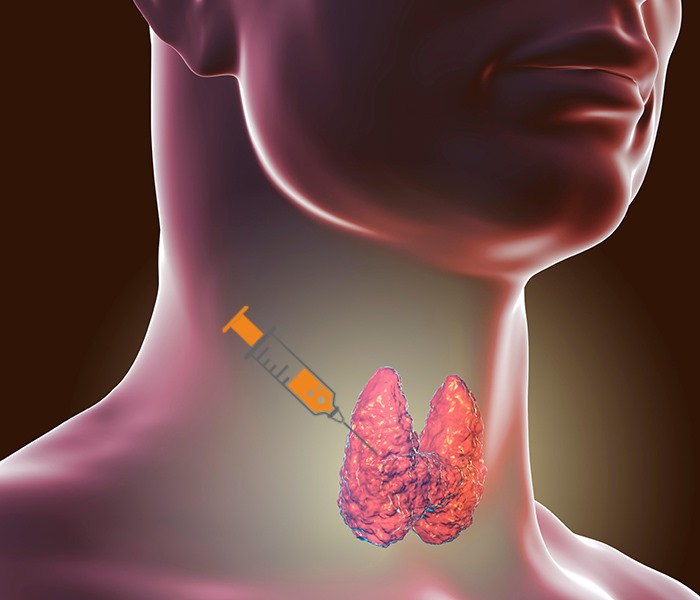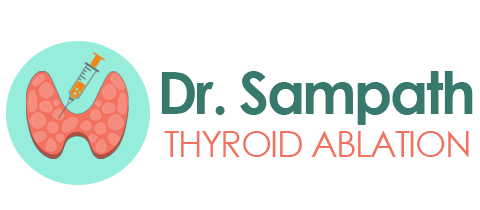
About Ethanol Ablation
Ethanol ablation is a minimally invasive procedure used to treat cystic thyroid nodules. This technique involves injecting ethanol (alcohol) into the cyst, which causes the cyst to shrink and alleviate symptoms such as swelling, discomfort, and cosmetic issues. The procedure is a safe and effective alternative to surgical removal, offering patients a quicker recovery time and minimal risk of complications. Ethanol ablation is particularly beneficial for patients with fluid-filled cysts that are symptomatic or aesthetically unpleasing, providing a non-surgical solution for managing these nodules.
Procedure
The procedure is typically performed under local anesthesia. A thin needle is inserted into the cyst under ultrasound guidance, and ethanol is injected into the cystic space. The ethanol causes the cyst walls to collapse and eventually be reabsorbed by the body. The entire procedure usually takes about 30 minutes, and patients can typically go home the same day. Ethanol ablation is a well-tolerated procedure with a high success rate, providing significant relief from symptoms and improving the patient's quality of life.
Benefits
Ethanol ablation offers several benefits, including minimal invasiveness, quick recovery time, and a high success rate in reducing the size of cystic nodules. It is a safe and effective alternative to surgical removal, especially for patients who prefer a less invasive approach. The procedure is associated with minimal discomfort and a low risk of complications, making it an attractive option for treating cystic thyroid nodules. Patients can return to their normal activities shortly after the procedure, with most experiencing significant improvement in their symptoms.
Risks
As with any medical procedure, there are potential risks. These may include temporary discomfort or swelling at the injection site, and in rare cases, infection or damage to surrounding tissues. Most patients experience little to no downtime and can return to normal activities shortly after the procedure. It is important to have the procedure performed by an experienced medical professional to minimize risks and ensure the best possible outcome. Patients should discuss the potential risks and benefits of ethanol ablation with their healthcare provider before undergoing the procedure.
Back to Services